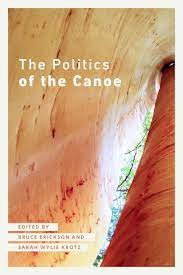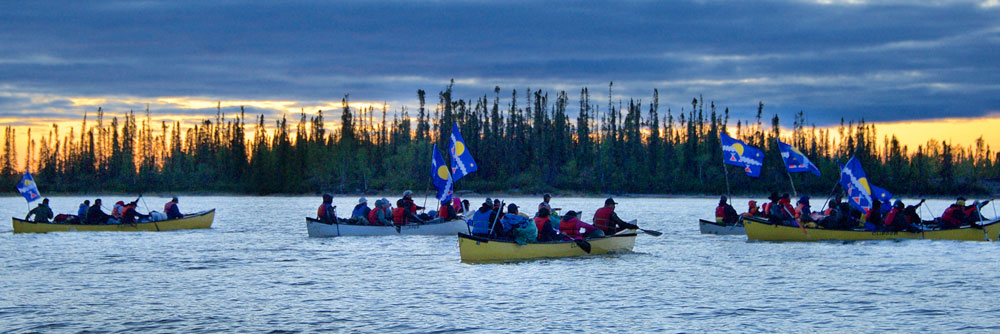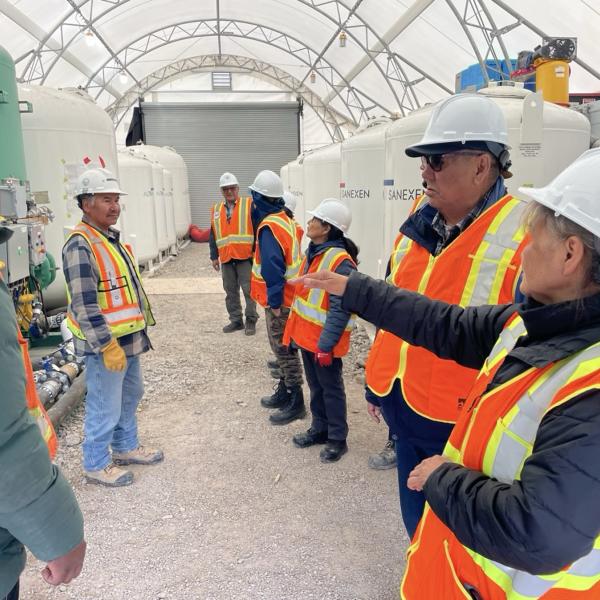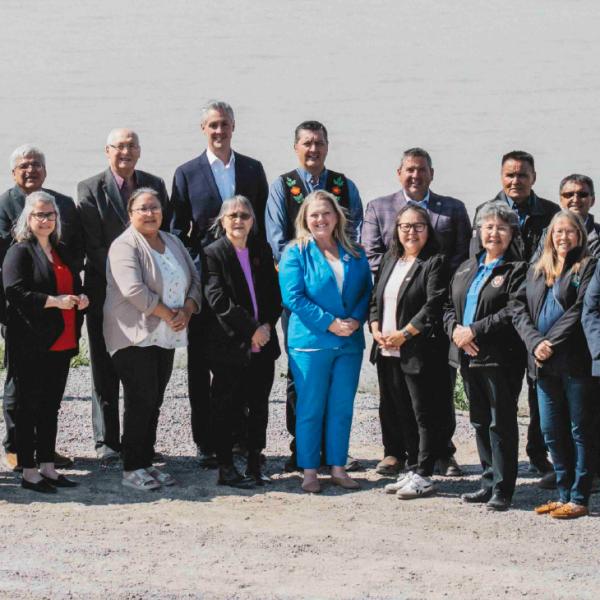In June 2018, a group of canoeing scholars and enthusiasts gathered at Fort Whyte Alive, an environmental, education, and recreation centre southwest of Winnipeg, Manitoba, for a workshop on the politics of the canoe. Co-organized by Bruce Erickson (University of Manitoba) and Sarah Krotz (University of Alberta), the purpose of the workshop was “to address the ways in which the canoe has been mobilized as a vehicle of power and resistance within the long history of colonialism in North America.”
Over the course of two days, the participants discussed ten papers, which were written and circulated before the workshop, in the airy space of the Siobhan Richardson Field Station. The group also attended screenings of Giwa: The Resurgence of the Ocean-Going Canoe, made by Hillary Beattie and Vina Brown, and United By Water, by Derrick LaMere, and, on the Sunday afternoon, four of the participants, including John B. Zoe, participated in a panel discussion on “Canoes, Colonialism, and Reconciliation” at the Canadian Museum of Human Rights.

An edited collection grew out of the workshop. Recently published by the University of Manitoba Press, The Politics of the Canoe “contributes an array of perspectives to an ongoing conversation about the canoe as a political object.” The ten chapters are organized into three sections: “Asserting Indigenous Sovereignty”; “Building Canoes, Knowledge, and Relationships”; and “Telling Histories.”
John B. Zoe and Jess Dunkin participated in the workshop and contributed a chapter to the book about the canoe in Tłı̨chǫ culture. Entitled “Whaèhdǫǫ̀ Etǫ K’è,” which means the trails of the ancestors in Tłı̨chǫ, their chapter is structured like a canoe trip, travelling to different places in Tłı̨chǫ nèk’e (the place where Tłı̨chǫ belong) in order to shed light on the historical and contemporary relations of Tłı̨chǫ with the canoe.
John B. and Jess met through the NWT On The Land Collaborative in 2016. Realizing their mutual interest in the canoe—John has played a critical role in the resurgence of Tłı̨chǫ canoe culture, while Jess has written about the social history of canoeing—they decided to collaborate on a submission to the workshop. Over the winter of 2018, they met regularly to discuss the importance of the canoe for Tłı̨chǫ past and present.

Photo of Pierre Judas, Johnny Eyakfwo, and Johnny Bishop at Kwetso Whoɂoǫ, 1988 (Photo Credit: John B. Zoe)
For John B., the canoe is more than a canoe. It is about life and connection to land. In the old days, the canoe, which depending on the size may be known as k’ıelà (small hunting canoe) or k’ıts’ı (large freighter canoe), was an important tool of travel and subsistence. In the fall time, for instance, canoes carried Tłı̨chǫ along well-trod and storied trails to hozı (tundra) to harvest ekwò (caribou).

While canoe use declined with the arrival of outboard motors and airplanes, the canoe remains an important reminder for Tłı̨chǫ of who we were before colonization. It is no coincidence that as our nation began negotiating a land claim and self-government agreement in 1992, we turned to the canoe to provide Tłı̨chǫ citizens with both a physical and symbolic connection to the land. Almost 30 years later, the Trails of Our Ancestors program remains an important mechanism for keeping our ancestral trails alive and strengthening our language, culture, and way of life.
The Politics of the Canoe is currently available through the University of Manitoba Press at a discounted rate. Use CANOE30 to get 30% off.






